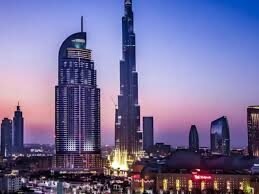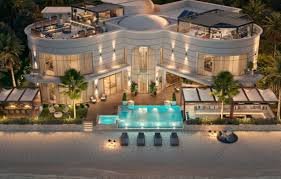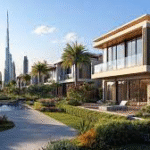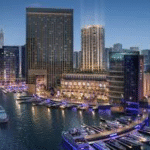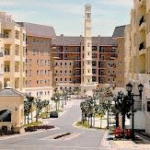Now Reading: 6 Feng Shui Secrets Boosting Dubai Real Estate Success
-
01
6 Feng Shui Secrets Boosting Dubai Real Estate Success
6 Feng Shui Secrets Boosting Dubai Real Estate Success

Table of Contents
Feng Shui and Dubai Real Estate are now more connected than ever. In the past few years, property developers and interior designers in Dubai have started using the ancient Chinese philosophy of Feng Shui to attract high-end buyers. This combination of energy balance, smart design, and cultural openness is shaping a new era in the real estate industry.
Dubai is known for its luxury buildings, modern skyscrapers, and beautiful villas. But now, a new trend is taking over—Feng Shui design. Developers believe that homes and offices that follow Feng Shui principles are not only more beautiful but also bring peace, success, and good fortune to the owners.
Let’s dive into how Feng Shui is influencing real estate in Dubai and why this energy-based philosophy is becoming a key selling point.
1. What is Feng Shui and Why is it Popular in Dubai?
Feng Shui is a traditional Chinese practice that focuses on how energy, or “Chi,” flows in a space. It uses rules of balance, positioning, and nature to create harmony in the environment. It can affect your health, mood, wealth, and even your relationships.
Dubai, being a city that welcomes cultures from all over the world, has embraced Feng Shui in both residential and commercial real estate. Many wealthy buyers from China, India, and other Asian countries look for homes built with Feng Shui principles. This makes it a smart move for developers to include Feng Shui elements in design plans.
2. The Impact of Feng Shui on Property Design

The influence of Feng Shui and Dubai Real Estate is visible in many new buildings. Here are some ways it shapes design:
- Entrance Placement: In Feng Shui, the entrance is called the “mouth of Chi.” A well-positioned front door invites good energy. Dubai villas and apartments are now built with wide, clear entrances.
- Open Spaces: Feng Shui favors open layouts for better energy flow. Dubai’s real estate projects now include open living rooms, minimal furniture, and natural light.
- Water Features: Water is a symbol of wealth in Feng Shui. Properties near fountains, pools, or artificial lakes are believed to bring more prosperity. This aligns well with Dubai’s famous waterfront developments.
- Colors and Materials: Soft colors, natural wood, stone, and glass are preferred to keep the energy calm and grounded.
- Directional Alignment: Some buildings are now aligned based on favorable compass directions, especially for bedrooms and kitchens, which are key areas in Feng Shui.
3. Real Estate Developers Capitalizing on Feng Shui
Luxury real estate companies in Dubai are using Feng Shui to attract international investors. They market these features clearly in brochures and websites. Some even hire Feng Shui experts during the planning phase.
Real estate agents say properties that follow Feng Shui rules are often quicker to sell and fetch higher prices. The demand is especially high among Chinese buyers who view Feng Shui as essential to a happy home.
In areas like Palm Jumeirah, Downtown Dubai, and Emirates Hills, buyers are specifically asking about energy balance and spatial design. For these high-value markets, Feng Shui isn’t just a trend—it’s a serious business advantage.
4. Office Spaces and Commercial Property
It’s not only homes that benefit. Commercial buildings in Dubai are now applying Feng Shui to boost employee productivity and attract more clients.
Companies want offices where energy flows freely, with plants, soft lighting, and round edges instead of sharp corners. According to local designers, even the placement of the CEO’s desk matters. A back-facing door is considered unlucky, while sitting facing the entrance is said to invite opportunities.
Dubai’s co-working spaces and startup hubs are adopting these layouts to offer a more balanced work environment.
5. Challenges and Misunderstandings
While Feng Shui and Dubai Real Estate seem like a perfect match, some challenges remain:
- Misuse of Concepts: Some developers use Feng Shui terms without truly understanding them. This can lead to false marketing or poorly designed spaces.
- Balancing Modern Architecture: Dubai’s futuristic designs don’t always match traditional Feng Shui rules. Blending both styles requires skilled architects and consultants.
- Client Education: Many clients, especially those not familiar with Eastern culture, may not see the value of Feng Shui. Developers need to educate them about the benefits beyond just style.
6. Future of Feng Shui in Dubai Real Estate

The future looks bright. As Dubai continues to grow as a global hub for luxury living, the demand for holistic and energy-friendly designs will also increase.
Developers may soon offer Feng Shui certification for properties. Real estate agents might be trained in basic Feng Shui to better serve clients. And interior designers who understand both modern aesthetics and ancient energy principles will be in high demand.
In the years to come, Feng Shui and Dubai Real Estate could become more than a trend—it might be the gold standard for smart, healthy, and profitable living.
Conclusion
The bond between Feng Shui and Dubai Real Estate is creating a new market for energy-conscious design. By focusing on flow, balance, and harmony, developers are not just building homes—they’re offering a better lifestyle.
This trend is not only profitable but also reflects the cultural diversity and innovation that make Dubai a global leader in real estate.
For buyers looking for peace, prosperity, and beauty in one place, a Feng Shui-friendly property in Dubai could be the perfect match.
Also read – Zen Gardens Homes: 7 Stunning Nature-Inspired Dubai Retreats



